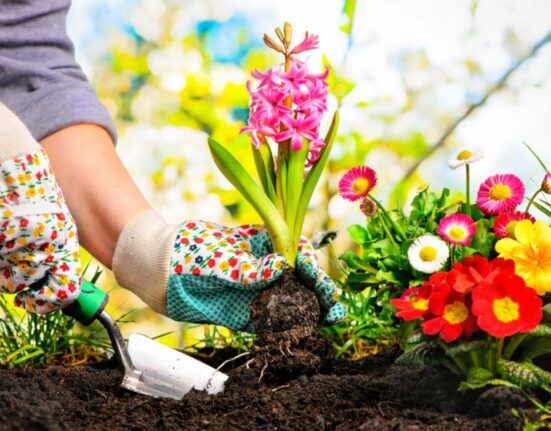Keeping garden tools sharp is essential not just for efficient use and improved performance, but for reduced wear and tear on your equipment and extend the life of your tool. This will also help prevent injuries or accidents so you’re not worrying about damaging your tools as much as possible.
Keeping Your Garden Tools Sharp Garden tools are used more than any other item in your yard, after all they’re what you use to tend to the landscape. Keeping them sharp can help make sure that they continue to work well and last longer. Here are some quick tips on how to keep your garden tools sharp:
Know the Safe Working Radius of Your Tool
This is a very important aspect of obtaining a sharp tool. Instead of cutting off a section of your finger to make sure you’re sharp, you’d just end up with a crooked finger. Instead, find out the safe working radius of your tool. This will tell you what section of your yard you can use your tools on before you risk cutting off a finger. The safe working radius of your tool is the distance from where the tip of the tool will reliably cut through a specific object.
You can measure this with a ruler and pencil. If you don’t have a ruler, you can eyeball it. Simply take a section of your yard and use your tool to cut a line through the yard. Now measure the distance between the cut line and the tip of the tool. Subtract this distance from the working radius for your tool to see how far you can use your tool before risk cutting off a finger.
Sharpen Only When You Need to
If you’ve brought your tools to near-sharpen condition, you don’t need to sharpen again. There could be a few reasons you need to sharpen your tool. One of the main reasons to sharpen a garden tool is if you notice it’s not cutting as well as it used to. If you’re cutting branches or branches with a lot of growth on it, your blade won’t be cutting as well.
If you notice this happening, sharpen your tool. Another reason to sharpen a garden tool is if you’ve been using it a lot and you notice your hand is tired. If this happens, you’ll need to take a break and sharpen your tool when you can catch your breath again.


Keep a Handful of Sharp Stones on Hand
Having a handful of sharp rocks on hand is a great idea for keeping your garden tools in tip-top condition. If you’re sharpening your tools, you’re going to need to touch the metal of your tools. This could easily leave a mark on your tools that you don’t want to happen. Keeping a handful of rough rocks on hand can be used as a makeshift guard for your tools.
Simply rub the edge of the rock with the edge of your tool to dull it and then use the rock as a guard. If you’re not sharpening your tools, don’t use your tools to sharpen the rocks either. Simply put the rocks in an old coffee mug in your tool shed and when it’s time to sharpen, pick them out and use them to sharpen your tools.
Use a Bench Grinder to Sharpen Tools
A bench grinder is a great way to quickly sharpen your tools. This could be done on a bench outside as long as there’s a source of ventilation. Another reason to use a bench grinder is if you don’t have access to a wheelbarrow or a wheeled cart for your tools.
A bench grinder is best used for removing large amounts of metal off your tools. The wheel on the bench grinder spins at a high speed and is designed to remove the large amount of metal at once so you don’t need to keep moving your tool back and forth.
Store Tools in Storage Bands
If you have a tool shed, you may be wondering why you need to keep your tools sharp. If you’re just using the most basic garden tools in the shed, there’s no need to keep them sharp. If you have more advanced or specialized gardening tools, you need to keep them sharp to get the most effectiveness out of them.
One way to do this is by storing them in a storage band. A storage band is a piece of wood that has a groove in it. You can use a carabiner to clip your tools onto the wood so they stay in place. Some tools like garden-related items like rakes, shovels and hoes should not be clipped to the band since they can easily get bent.


Avoid Over-Shaft Sharpening
If you’re overshaft sharpening your tools, you’re taking the metal off the edge of the tool. This increases the amount of metal that’s exposed to your blade and increases the potential for damage. Over-shaft sharpening is best avoided by using the safe working radius of your tool to know when you need to stop. If you notice that you’ve taken off too much metal, simply put the tool back to where it was.
Conclusion
Keeping your garden tools sharp is not only important for efficiency, but for longevity as well. Your tools will last longer if they’re sharp and not damaged by excessive wear and tear. Keeping your tools sharp is a great way to protect yourself from injuries and damage.
To make sure your tools are always sharp, follow these tips. Keeping your tools sharp is an essential part of being a gardener, but it can be tricky if you don’t know what you’re doing. Thankfully, we’ve got some tips and tricks for you to keep your tools in tip-top shape.






